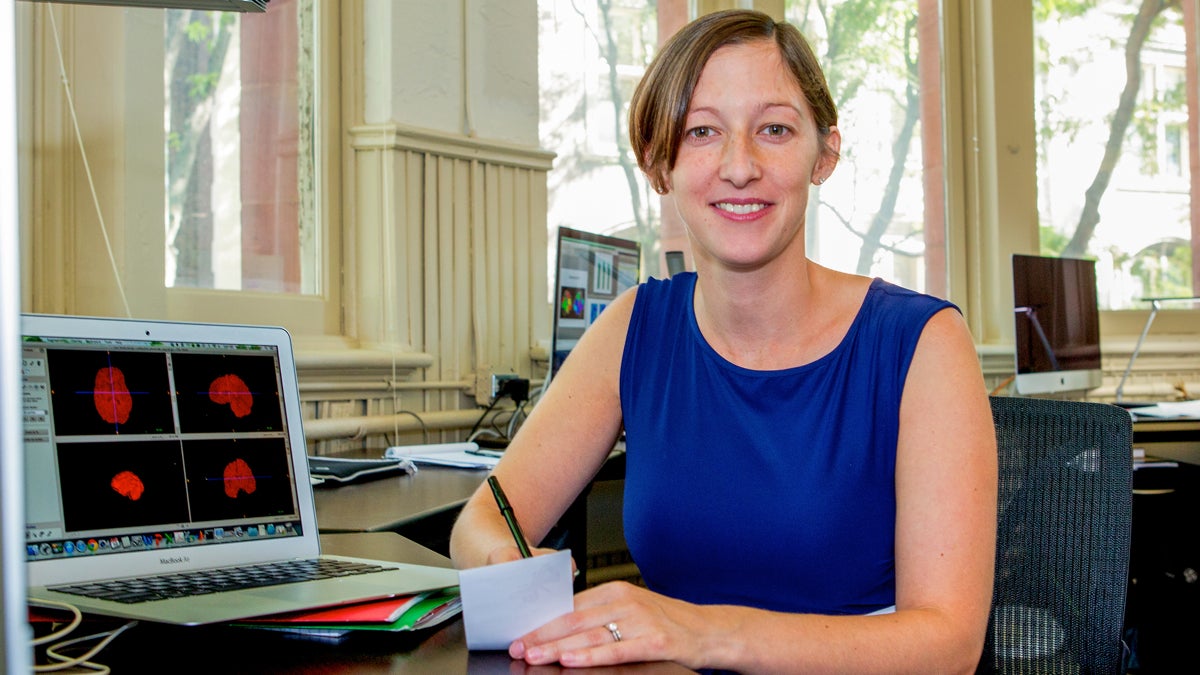Penn scientist wins MacArthur ‘genius grant’
Listen
Danielle S. Bassett in the lab area of her office at Hayden Hall at the University of Pennsylvania. (Image courtesy of MacArthur Foundation)
University of Pennsylvania bioengineer Danielle Bassett has been named one of this year’s MacArthur Fellows for her interdisciplinary study of the brain.
Trained as a physicist, Bassett applies mathematics and network science to neuroscience. She is one of 21 recipients of the 2014 awards, which recognize high achievers with creative potential in all fields, from art and literature to political science and cryptography.
When Bassett received the call from the MacArthur Foundation in her office, she was surprised and very excited. “I was absolutely thrilled,” she said.
Just a year into her assistant professorship, Bassett wants to understand how the brain is connected and communicates. She’s particularly interested in how neural communication patterns change over time, both as the brain develops and in the act of learning.
“We’ll have people come into the [MRI] scanner and play these piano arpeggios, as if it was a new musical piece that they were learning,” she said of some recent experiments. That data can begin to decipher what brain changes happen that facilitate learning. Ultimately, Bassett would like to figure out what interventions might nudge the brain to learn better — as well those that could treat psychiatric illnesses.
It was just four years ago during postdoctoral research at the University of California, Santa Barbara, that Bassett realized she had found her scientific calling.
“When we first found that the amount of flexibility in somebody’s brain network predicts how much they’re going to learn, I was completely fascinated,” she said. “I knew this was a really exciting finding and one I wanted to dig into a lot deeper in a lot of different ways.”
As a fellow, Bassett will receive $625,000 over five years. In the spirit of promoting creativity, the MacArthur Foundation imposes no stipulations on its use.
“I think what we’re going to do is devote some time and energy and some of the funding to trying out those slightly more risky ideas, which we couldn’t necessarily convince a traditional funding agency to fund,” said Bassett. “It really gives us time and license to try some very creative things that we’ve been thinking about but haven’t been able to do yet.”
WHYY is your source for fact-based, in-depth journalism and information. As a nonprofit organization, we rely on financial support from readers like you. Please give today.

